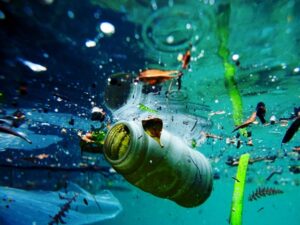Minister: Department of Water & Sanitation (dws.gov.za) emphasizes the imperative need for a national register of polluters to tackle environmental and water source pollution effectively in South Africa. This call to action emerged as a significant resolution during a workshop on ‘Water Services Authorities impacting the Vaal River’, where Minister Mchunu underscored the Department of Water and Sanitation‘s commitment to addressing pollution for the benefit of the environment, businesses, and communities.
“A National Register of Polluters is necessary to hold individuals and entities accountable for their actions. We aim to include the names of those in positions of authority, such as mayors and CEOs, in this register to ensure they are answerable for any negligence leading to river pollution,” stated Minister Mchunu. In addition to establishing the register, urgent measures include forming a sectoral forum comprising experienced professionals to confront the situation head-on and devise practical strategies to transform the current state of the Vaal river system into a relic of the past. Similar forums focusing on other river systems will also be instituted with the same goal in mind. Minister Mchunu emphasized the critical importance of the Vaal river as a vital water source, essential for communities, industries, and ecosystems. Threatened by various factors, including wastewater discharge, collaborative efforts are imperative to mitigate these impacts and safeguard this invaluable resource for future generations. To combat water pollution effectively, all levels of government must commit to a comprehensive approach encompassing prevention, early detection, rapid response, restoration, collaboration, research, and innovation.Preventative measures involve implementing strategies to prevent the introduction and spread of alien invasive species, including raising public awareness and enforcing regulations on potentially invasive species’ import and sale.
Monitoring programs for early detection of invasive species, along with rapid response measures for their control, are crucial. This includes rehabilitation and restoration of native vegetation and ecosystems impacted by invasive species to restore the river’s ecological balance and overall health. Collaborative efforts with government agencies, NGOs, and local communities are vital, facilitating resource sharing, knowledge exchange, and expertise development for effective management strategies. Finally, Minister Mchunu emphasized the importance of supporting research and innovation in invasive species management to develop more efficient methods for controlling invasives and restoring native habitats.






